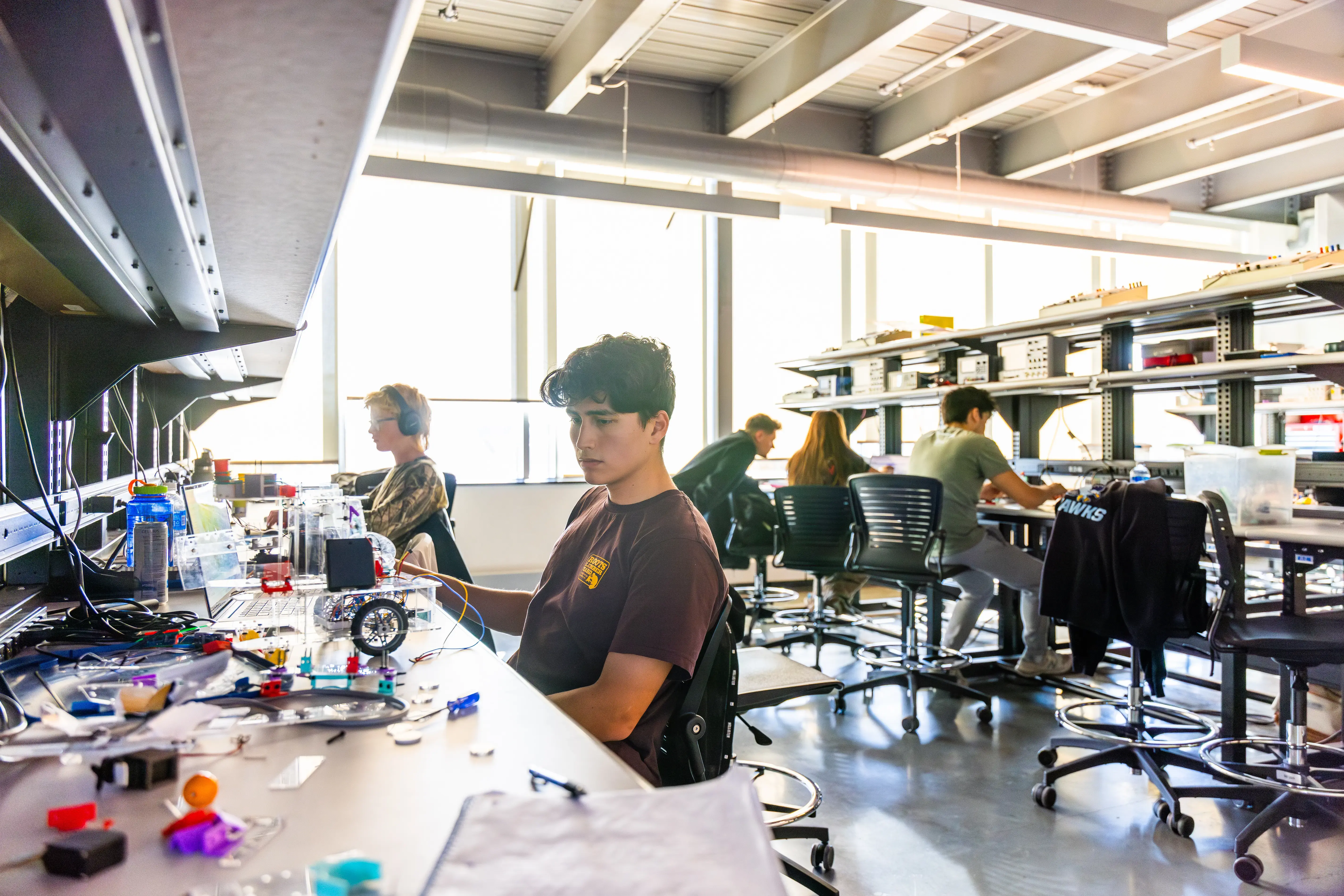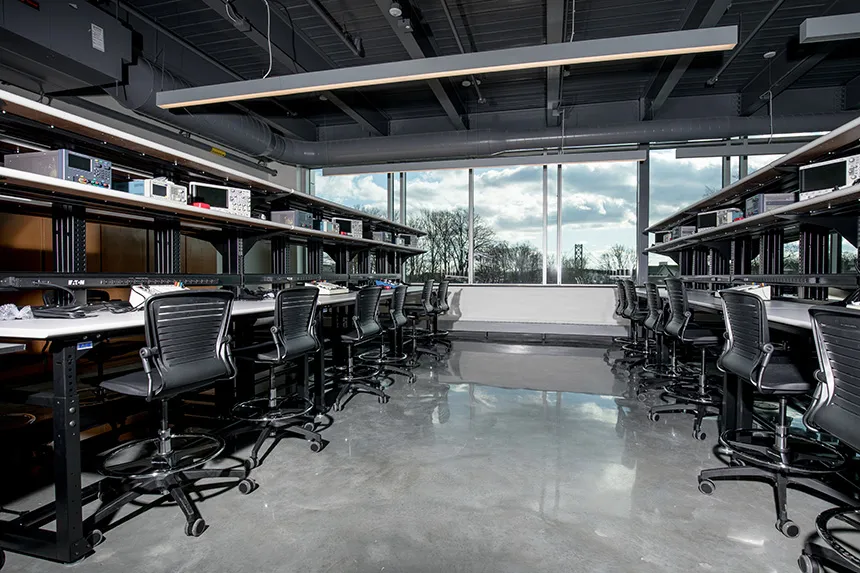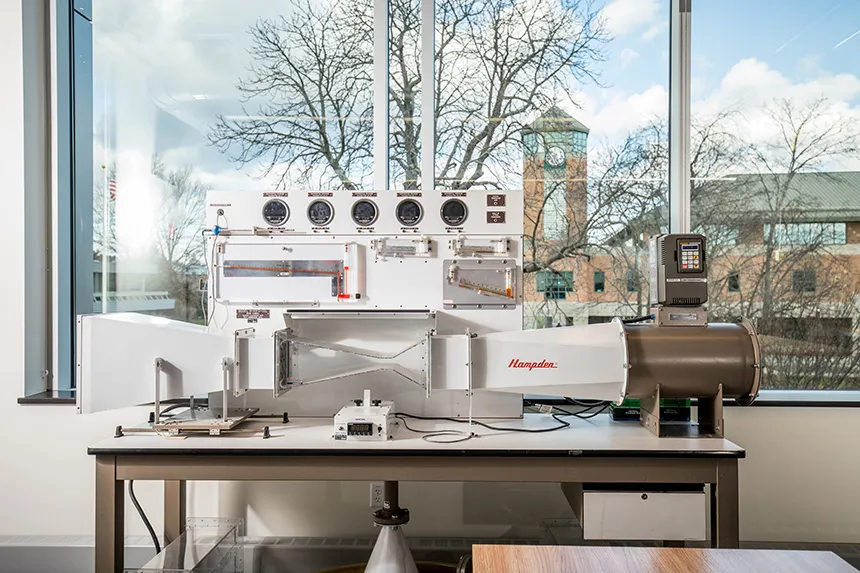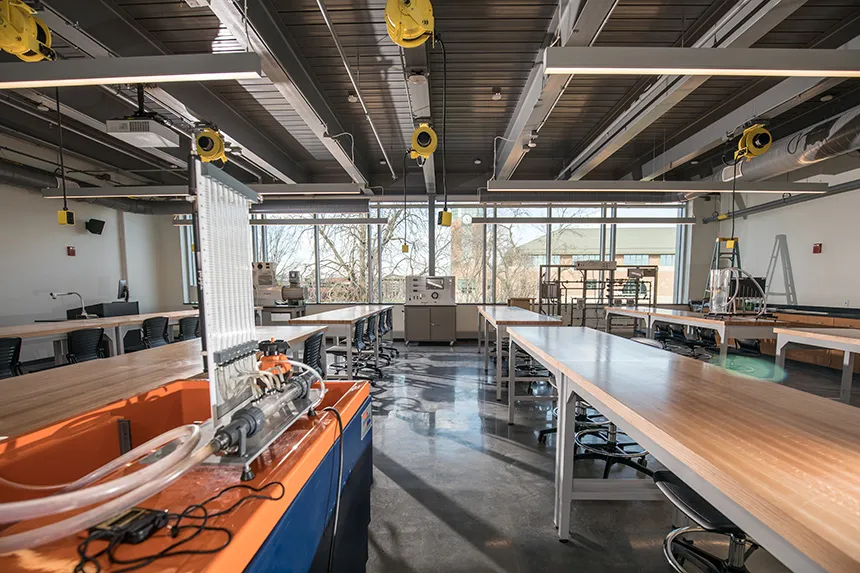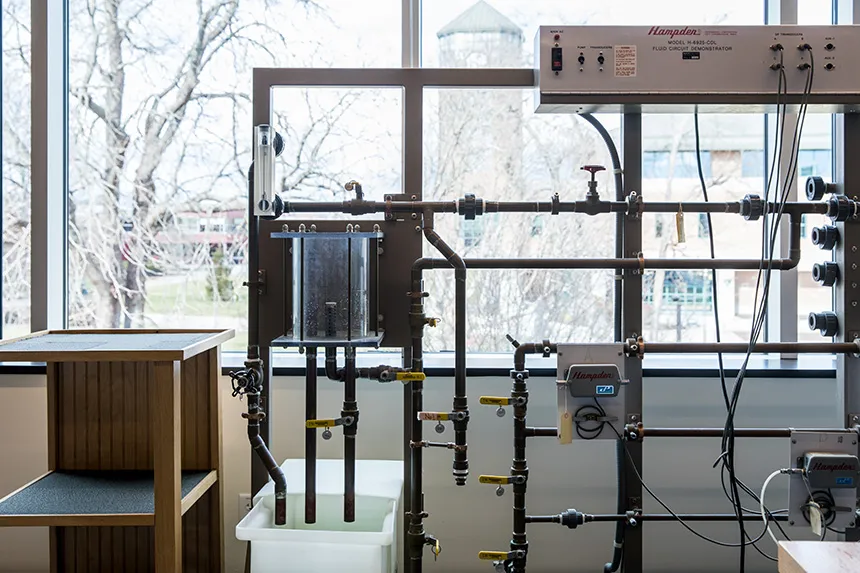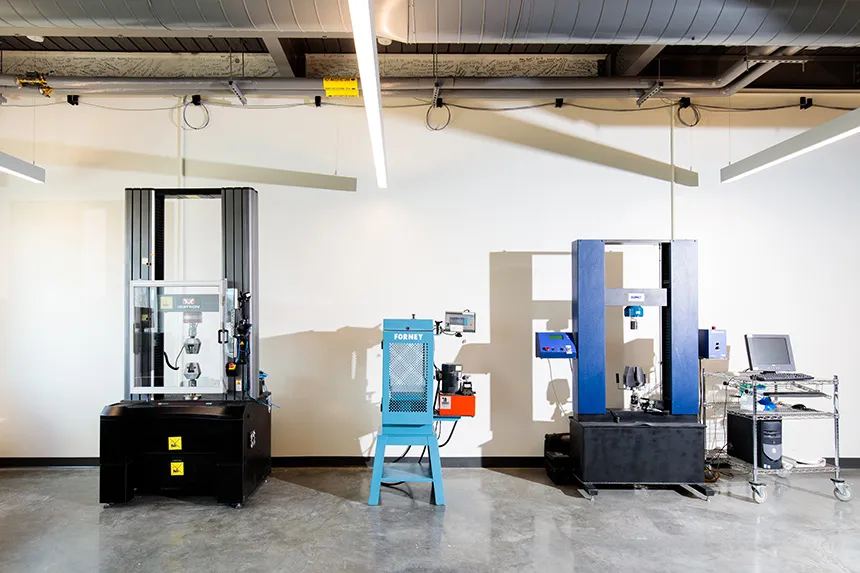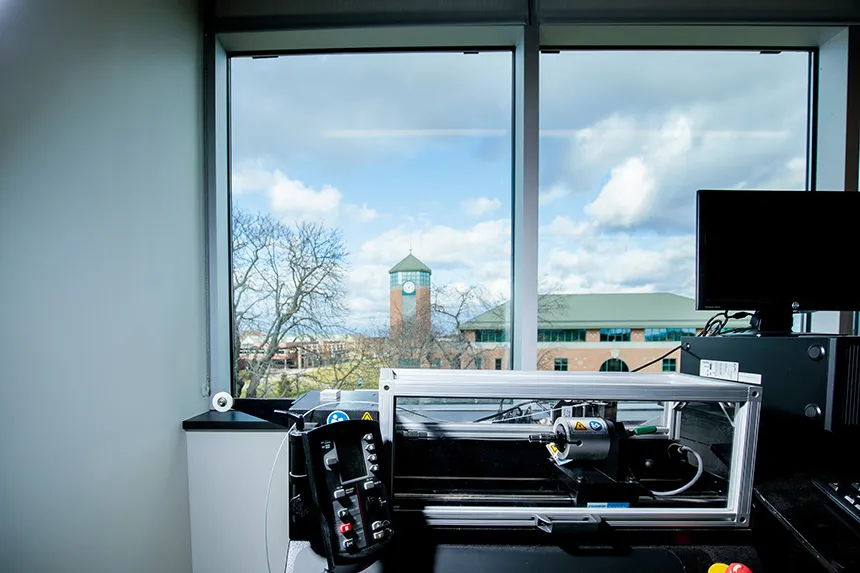About the Engineering Major
In addition to world-class facilities and personal interaction between faculty and students, our hands-on curriculum develops the skills you need for the future of engineering. This major is coordinated by the Engineering program, which is accredited by the Engineering Accreditation Commission of ABET under the General Criteria.
QUICK LINKS
Engineering Major Success By The Numbers

Placement of Graduates
Through the years, our graduates consistently find success in employment or graduate schools within six months of graduation.

First Job, Dream Industry
SECCM graduates land their first jobs in their targeted industries, such as engineering, defense, construction, manufacturing, technology, or consulting.

Average Starting Salary
of 2022 SECCM graduates.
Engineering Degree Requirements
Engineering Program Educational Objectives
Three to five years after graduation, we expect our graduates to:
- Possess an inquisitive mind, demonstrate excellence in technical knowledge and skills, achieve success as a practicing engineer or graduate student, and apply the highest ethical standards in all pursuits.
- Value the concept of, and demonstrate through practice, activities and actions that contribute to continual intellectual growth.
- Advance the engineering profession by becoming actively involved in professional associations and societies, serving in professional and community volunteer positions, acting as a role model for the future generation of engineers, and assisting the SECCM Engineering Program in achieving its mission and goals
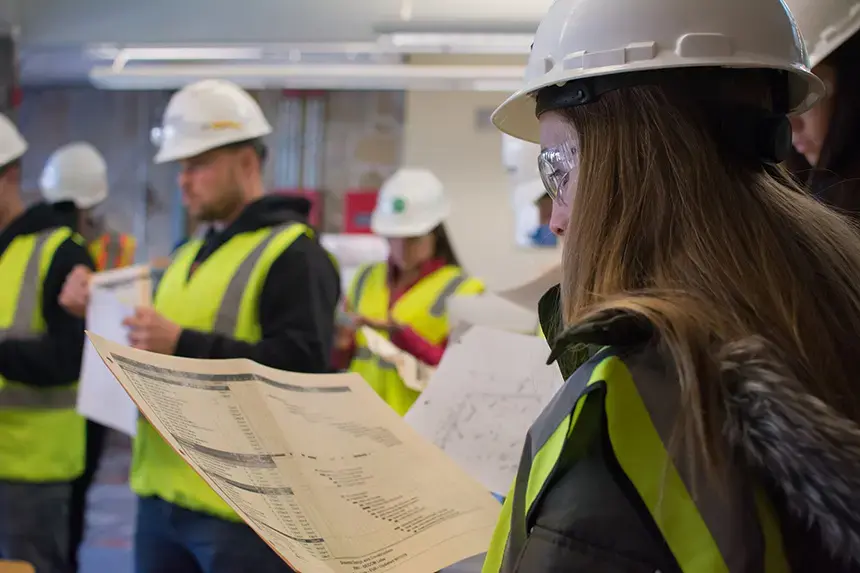
Tailor Your Engineering Expertise with a Specialization
Once you have a broad background in Engineering practices, beginning in your third year, you will have the flexibility to tailor your education to your own Engineering interests by selecting a specialization. Students may choose from Civil, Computer, Electrical, Environmental, or Mechanical, or can consult with their faculty advisor to create a custom specialization.
Civil Specialization
From the roads, highways and bridges we drive on to the clean water we drink and the buildings we see in the skyline, Civil Engineering makes modern life possible.
Computer Specialization
The rapid advances in today’s computer technology are largely the result of the research, development, and design efforts of computer engineers.
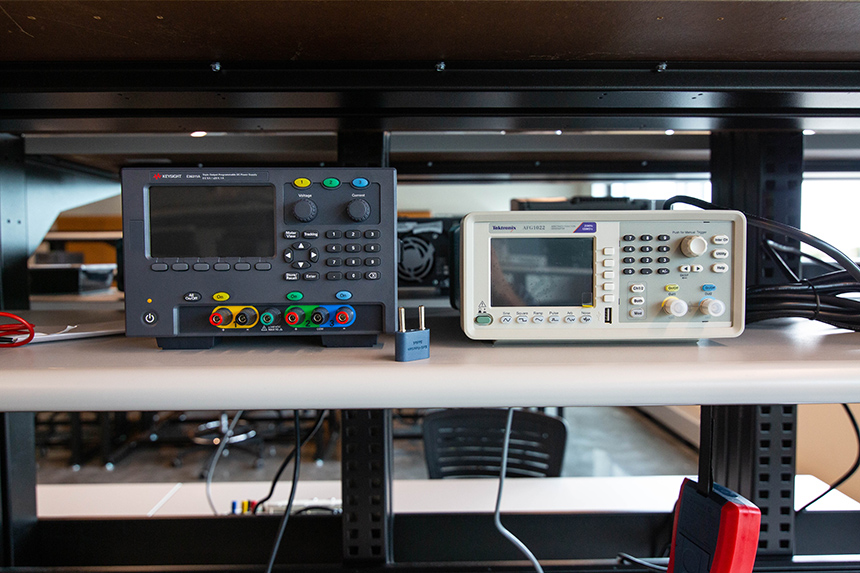
Electrical Specialization
In a world where technology is constantly growing and evolving, Electrical Engineering is becoming more essential, from lighting and wiring in buildings to electric motors for automobiles.
Environmental Specialization
Environmental engineers work on solutions to water and air pollution, design water supply and wastewater treatment systems, and study the effects that acid rain, global warming, and automobile emission have on our everyday lives.
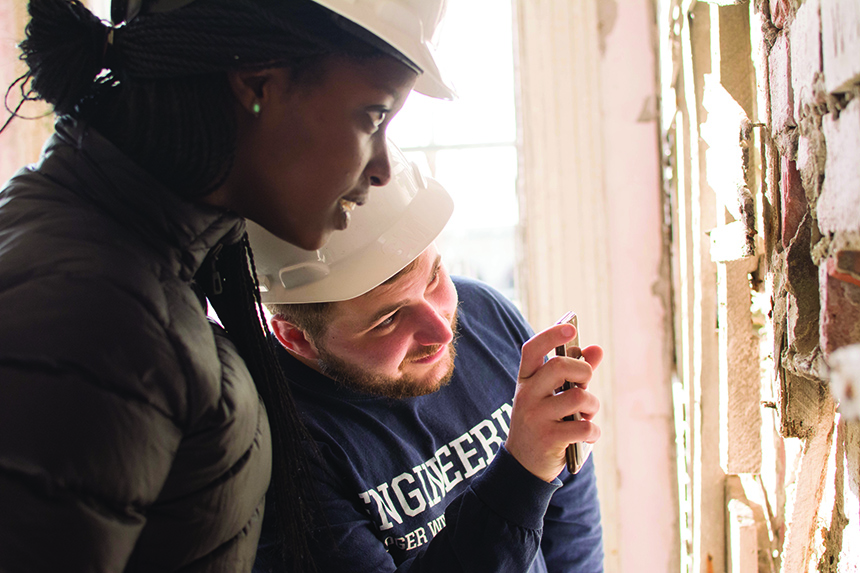
Mechanical Specialization
From power-producing machines like wind turbines, hydroelectric generators, and internal combustion engines to power-using machines like cars, planes, robots, and medical devices, mechanical engineers are constantly designing and developing life-changing mechanisms.
Custom Specialization
Students interested in more than one type of Engineering, or those who want to prepare for an emerging field not defined by a traditional specialization, can work with their faculty advisor to design a custom specialization perfectly tailored to their interests.
4+1 Master's Program Partnership with UMass Dartmouth
RWU and UMass Dartmouth have partnered to provide joint accelerated master's programs in Electrical Engineering, Computer Engineering, and Civil Engineering.
RWU engineering students can take two courses their senior year and apply those 6 credits to one of 3 UMass master’s in engineering degrees – civil, computer or electrical, allowing them to complete both degrees in five years.
This unique opportunity offers students an efficient and cost-effective pathway to reach their academic goals and begin careers in high-demand fields.
Students interested in the accelerated B.S./M.S. programs may consult their program coordinator or dean about eligibility and the application process.
Engineering State-of-the-Art Facilities
The newest building on the Bristol campus, the Richard L. Bready Applied Learning Laboratories is designed to foster collaboration and innovation while offering high-tech resources for experiential learning. The three-floor, 27,325-square-foot building features seven cutting-edge laboratories, senior design project rooms and open spaces dedicated to hands-on education.

NASA-Funded Undergraduate Engineering Research
Two undergraduate Engineering students spent the summer working on cutting-edge lasers research, funded by the National Aeronautics and Space Administration. Senior Santiago Armas and junior Hunter Phillips, both Engineering majors with Electrical specializations and minors in Mathematics, received prestigious summer research scholarships from the NASA Rhode Island Space Grant Consortium. Assistant Professor of Engineering Ahmet Akosman, whose areas of expertise include lasers and fiber optics, served as their advisor. This valuable hands-on research experience will set the students apart when applying for jobs or graduate school after Roger.
Hear from Hawks

Jared Ramos '18
“By the time I was in advanced classes there were only 10-12 students in each class. We were all really close with our professors. I remember one professor who would stay late after class helping students with projects, working on robotics, having fun and always being there for support. You could tell he really cared."
Jared Ramos '18
Major: Civil Engineering
Project Engineer at Gilbane Building Company in Providence, R.I.

Daniella Giannotti '22
"The Electrical Engineering courses I took gave me a very good basis to build off, and I like that I was able to get an interdisciplinary engineering experience. I won't be working on a project that's strictly electrical. There will be mechanical components, and having that background of knowing how things work is really helpful. That's one of the reasons I chose Roger."
Daniella Giannotti '22
Major: Electrical Engineering
Integration and Test Engineer at L3Harris Technologies in North Amityville, N.Y.

Hannah Darling '22
"All my Engineering professors were attentive, supportive, and genuinely cared about whether we were learning the material. Dr. Maija Benitz has always been an inspiration for me as a woman in Engineering. She really cares about her students and is very approachable and accessible. She gave me the push and encouragement I needed to pursue my Ph.D."
Hannah Darling '22
Major: Environmental Engineering
Ph.D. candidate in UMass Amherst's Mechanical Engineering program
Cooking Up A Pizza Robot
The Senior Design Project is a fundamental element of senior year. Much like the cross-discipline work that will be in their future careers, the design of our students’ senior projects integrates math, science, computer science, and engineering principles into a comprehensive, client-based engineering design project. Student teams work with faculty advisors to design and fabricate solutions to open-ended problems and present their projects at professional conferences and competitions.
Past Senior Design Projects have included:
- Arthroscopic surgery suturing device
- Bike path bridge and foundation design
- Human powered vehicle competition
- Wearable blood oxygen meter
- Stormwater modeling and retention design
Engineering Majors Innovate Medical Device
RWU Shawmut Scholars Get Full Scholarships and Great Internships
Combining industry-aligned education with real-world experience, the RWU Shawmut Scholars program is an innovative partnership that enhances student learning beyond the classroom. Along with full-tuition scholarships, Shawmut Scholars get paid internships, professional development and career networking opportunities with leading industry professionals. Read about our talent-development pipeline program in Constructor, the Associated General Contractor of America Magazine.
Career Preparedness in Engineering
Our students are encouraged and supported to take the Fundamentals of Engineering exam and become an Engineer In Training (EIT), a professional designation from the National Council of Examiners for Engineering and Surveying (NCEES) and a key step toward licensure as a Professional Engineer.

Employer Praise for RWU Engineering Alumni
“We couldn’t have a better partner in developing the most talented professionals for our industry than Roger Williams University, with its outstanding and nationally-ranked programs in construction management and engineering.”
Les Hiscoe
CEO of Shawmut Design and Construction
Faculty Experts in Engineering
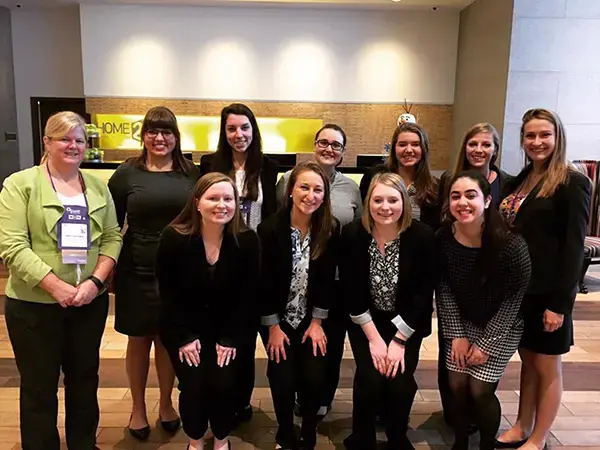
Ways for Engineering Majors to Get Involved
Society of Women Engineers
RWU's chapter of the Society of Women Engineers provides opportunities for women students to build community and connect with faculty mentors and industry professionals to advance women in engineering. Students travel to the Society of Women Engineers Conference, making industry connections that lead to success after graduation.
Each year, SWE brings scores of fourth-grade girls to campus for a hands-on engineering lesson that helps them earn a Girl Scouts badge.
- In Fall 2020, women students accounted for 49% of all students in STEM majors, which includes the sciences, math, engineering, and computer science
- 41% of tenured and tenure-track Natural Science, Computer Science, Engineering, and Mathematics professors are women, ahead of the national average of 36%
Engineers Without Borders
RWU's Engineers Without Borders chapter focuses on community based projects by providing an engineering solution. Throughout the school year, students and faculty collaborate to plan, design, and prototype for upcoming projects. They also take part in various local engineering projects. In recent years, EWB has traveled with The Foundation of the International Medical Relief of Children (FIMRC); their first trip was in 2016 to Dajabon, Dominican Republic.
American Society of Civil Engineers
RWU's chapter of the American Society of Civil Engineers competes in the American Institute of Steel Construction's Steel Bridge Competition in which students will plan, design, construct, and compete with various schools to see how fast they can assemble their bridge and how much load it can withstand.
American Society of Mechanical Engineers
The mission of RWU's chapter of the American Society of Mechanical Engineers is to inspire the application of engineering techniques, assist with the development of curious minds, and embrace the diverse benefits of calling one's self a mechanical engineer. ASME membership offers students a variety of benefits to help build their careers.
Electrical and Computer Engineering Club
As part of RWU's Institute for Electrical and Electronic Engineers, members participate in professional development, social outings, basic electronic activities, and discussions about technology. IEEE is the world’s largest professional association dedicated to advancing technological innovation and excellence for the benefit of humanity, and its members are engineers, scientists, and allied professionals whose technical interests are rooted in electrical and computer sciences, engineering, and related disciplines.
Robotics Innovation
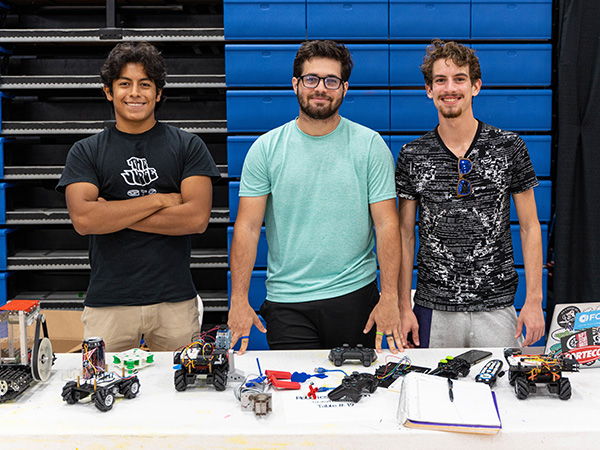 The goal of the Robotics Innovation club is to gather passion-driven students of all academic years who wish to innovate and gain hands-on experience in the fundamentals of building robots with kits and previous pre-existing projects. Students can participate in robotics/innovation competitions, conferences, and more. Robotics Innovation encourages both engineers and technology-interested non-engineers to share the passion for robotics and innovation.
The goal of the Robotics Innovation club is to gather passion-driven students of all academic years who wish to innovate and gain hands-on experience in the fundamentals of building robots with kits and previous pre-existing projects. Students can participate in robotics/innovation competitions, conferences, and more. Robotics Innovation encourages both engineers and technology-interested non-engineers to share the passion for robotics and innovation.
Multicultural STEM Alliance
The Multicultural STEM Alliance aims to strengthen the sense of community among students of color in STEM majors at RWU by offering activities, mentorship, and networking opportunities at and outside of the university.
